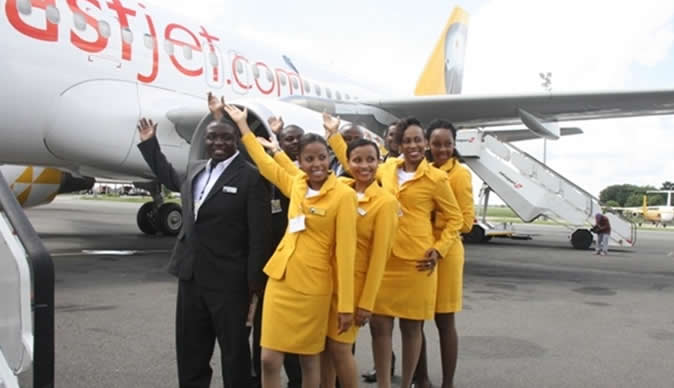IDBZ rights oer to raise $1,65bn
THE Infrastructure Development Bank of Zimbabwe (IDBZ) is targeting to raise $1,65 billion in the second half of the year through a rights offer, as it seeks to bolster its lending capacity towards capital projects.
Mr Zondo Sakala, the bank’s chief executive, said the IDBZ remained committed to delivering on its mandate guided by the 2021-2023 Work Programme under the Theme: “Transforming and Retooling Towards a DFI of Scale”.
The efforts complement ongoing key infrastructure programmes funded by Government across the country, including construction of roads, dams, schools, health facilities and public administration facilities, among others.
“…to this end, shareholder engagements in this regard are ongoing,” he said in a statement accompanying the bank’s financials for the interim period to June 30, 2021.
He said during the period under review, the bank managed to raise an equivalent of US$3,6 million for projects implementation and a further $100 million was received from the Government towards the bank’s capitalisation.
The IDBZ was established in 2005 as a successor organisation to the Zimbabwe Development Bank (“ZDB”), and is governed by an Act of Parliament, the Infrastructure Development Bank of Zimbabwe Act (Chapter 24:14).
The bank was set up and charged with an expanded mandate mainly focusing on infrastructure development and financing and falls under the purview of the Minister of Finance and Economic Development.
A rights offer is a capital raising process where prescribed shares are offered to existing rdinary shareholders to purchase additional stock shares at a predetermined price, in proportion to their existing shareholdings, in exchange for money.
As of December 2020, Government was the largest shareholder in IDBZ, followed by the eserve Bank of Zimbabwe.
Other shareholders are Fidelity Life Assurance Company of Zimbabwe, Finnish Fund for Industrial Cooperation Limited (Finnfund), the African Development Bank (AfDB), German Investments & Development Company (DEG) and the European Investments Bank (EIB).
Mr Sakala said during the half year period, the IDBZ approved private sector projects worth $144 million while applications worth more than $1 billion in respect of energy, mining and irrigation projects were being considered for funding.
“The growth of the loan book was negatively affected by the tight liquidity conditions and the high interest rates obtained in the market, however, despite inflationary pressures and work disruptions due to the Covid-19 pandemic, the bank achieved notable progress on on-going projects,” he said.
He said the Sumben Housing Project Phase I ( Harare) had reached 54 percent completion while the Bulawayo Student Accommodation Complex (BSAC)project was now at 69 percent overall completion over the period.
“In preparation for the implementation of Sumben Housing Project Phase II, the Bank in artnership with the Environmental Management Agency (EMA) is undertaking an Integrated River Basin Management (IRBM) study for Gwebi River.
“This was necessitated by the need for an integrated approach to river basin management to optimise land uses for economic growth whilst enhancing the conservation status of the basins,” he said.
Mr Sakala indicated that at least an equivalent of US$2,5 million was needed for projects preparation and development funding for programmes prioritised in 2021.
“Notwithstanding limited availability of project preparation funding, project preparatory work continued in the first half of 2021 for projects that include Lupane Students Accommodation Complex (Lupane, Victoria Ranch Housing Project (Masvingo), Chinhoyi University of Technology Student Accommodation Project (Chinhoyi), Bindura University
of Science Education Student Accommodation Project (Bindura), Catholic University of Zimbabwe Student Accommodation (Harare) and Getjenge Housing Project (Plumtree).
Others are Fernhill Special Economic Zone Project (Gemmology Centre, Mutare), Spitzkop Housing Project (Gwanda); Kanyemba Lodge Project (Kanyemba), Waneka Housing Project Phase 3 (Harare), Odzani Mini-Hydro Project (Mutasa) and Gutu Solar Project (Gutu).
“The bank has noted that inadequate transmission and distribution infrastructure will negatively affect the scaling up of renewable energy projects across the country.
“Grid Impact Assessments have shown that existing substation and transmission infrastructure will not be able to accommodate some of the Bank’s planned solar projects namely, Tjibundule Solar Project (Plumtree); and the Gwayi Solar Project (Gwayi), hence the Bank’s decision to shelve them,” Mr Sakala said.
He indicated that alternative suitable sites for the implementation of the envisaged solar projects are being sought, but completion of project preparatory work is also being delayed by the time needed to obtain the required regulatory approvals.
Mr Sakala said the procurement of a consultant to undertake a feasibility study for the Biri Dam Irrigation Scheme Was at an advanced stage though progress was negatively affected by disruptions induced by the Covid-19 pandemic.
In terms of financial performance for the period, the bank’s revenue decreased by $2,6 million from a negative amount of $8,1 million in the comparative period in 2020 to a negative amount of $10,7 million in 2021, albeit with lower interest income.
Other income increased by 129 percent from 7 million prior year to 16,2 million as a result of an increase in rental income. “The Bank realised a net gain from its financial investments resulting in a positive movement of $7,3million, the gain is mainly attributed to the increase in the value of some of the equities securities held by the Bank,” Mr Sakala
said.-herald.cl.zw











